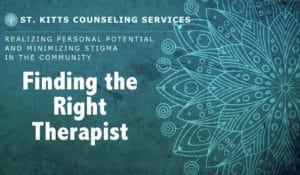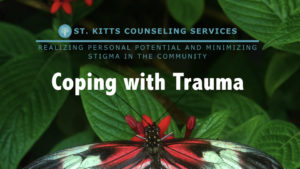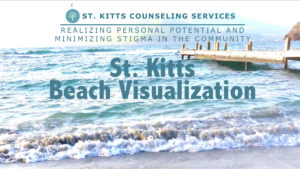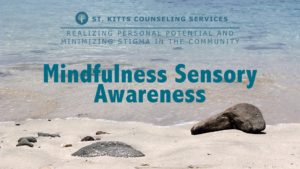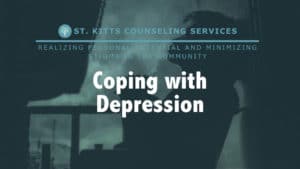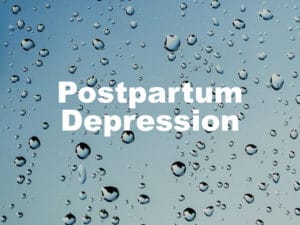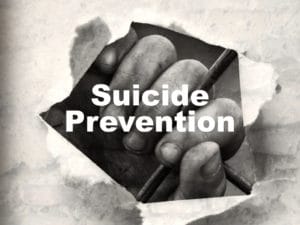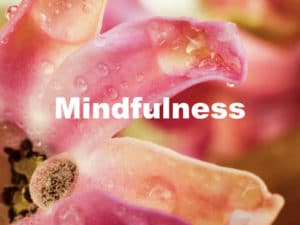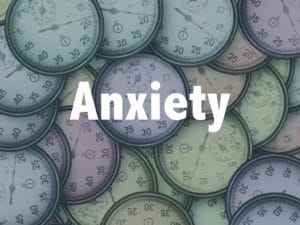
As the Coronavirus spreads, fears have griped the world. The Federation of St. Kitts and Nevis is no exception. With increasing exposure to information about the novel Coronavirus, including news reports, travel advisories, government updates, Facebook posts and WhatsApp group messages, many people in St. Kitts and Nevis are struggling to manage feelings of anxiety and stress. For many of us, this is a time of great uncertainty. Much is unknown, cannot be fully predicted, many questions go unanswered, and in fact many questions cannot be answered. Because uncertainty is a close friend to anxiety, many of us are left feeling extremely anxious and stressed.
Unfortunately, stress can weaken our immune system, which can then decrease our ability to fight viruses. In addition, excessive anxiety can be extremely painful, and may result in unhelpful behaviors.
Common Reactions to Coronavirus
Although we all will experience this period of time differently, many of us are struggling with common experiences.
Common Difficulties
- Anxiety, worry, panic or fear
- Feeling stressed or overwhelmed
- Helplessness
- Frustration, irritability, or anger
- Sadness and/or loss of interest in enjoyable activities
- Difficulty concentrating and sleeping
- Isolating or withdrawing from others, and/or fear of going to public spaces
- Physical difficulties, such as increased heart rate, stomach upset, and low energy
- Hypervigilance to changes in your health and body
Strategies to Manage Your Coronavirus Stress and Anxiety
Because excessive anxiety or stress can weaken our immune system and result in unhelpful behaviors, are not generally productive, and is extremely painful, it is worth considering strategies to reduce your Coronavirus stress and anxiety. Instead, try practicing the following strategies to reduce your coronavirus stress and anxiety.
1. Seek Information from Only Quality Resources
Obtaining information from trusted experts with legitimate credentials can help us to better rationally evaluate our personal or familial risk, and plan ahead. In contrast, exposure to information from unreliable sources, fantastical or hyperbolic headlines, or Facebook posts from uninformed persons speculating about areas beyond their expertise, or those engaging in rumor-mongering is likely to increase unproductive anxiety.
2. Limit your Exposure to News, Social Media and WhatsApp Group Messages
While it is helpful to obtain reliable information to better understand one’s risk and plan, continuously watching the news, reading information on social media etc. is likely to increase excessive worry. Instead, try limiting your exposure to news and social media to specific times of the day and shorter periods of time.
It is also okay to set boundaries with friends and loved ones, letting them know that you would rather not discuss coronavirus at this time, or excusing yourself from a discussion that is causing you anxiety.
3. Assess Your Personal Risk and Prepare
In order to feel more in control, and reduce your coronavirus stress and anxiety, it is helpful to assess your personal and familial risk for contracting the coronavirus, and then take rational steps to prepare.
A part of preparation is to practice the precautionary strategies recommended by the Ministry of Health, National Emergency Management Agency (NEMA), Pan American Health Organization (PAHO), World Health Organization (WHO) and Centers for Disease Control and Prevention (CDC).
At the current time, it is recommended that you:
- Frequently clean your hands with an alcohol-based cleaner containing at least 60% alcohol, or wash your hands with soap for at least 20 seconds.
- Avoid touching your eyes, nose, and mouth.
- Clean and disinfect frequently touched surfaces daily (e.g., doorknobs, cell phones, keyboards, light switches, countertops).
- Refrain from shaking hands and kissing people on the cheeks when greeting.
- Cover your nose and mouth with your bent elbow or tissue when you cough or sneeze. Dispose of tissues immediately.
- Maintain 6 feet of distance between yourself and anybody who is coughing or sneezing.
- Stay at home if you are sick, except to get medical care.
Other strategies to help you feel more in control and prepared may include:
- Store a couple of weeks supply of water and food.
- Ensure that you have a supply of necessary prescription and non-prescription medications.
- Make sure you have copies of necessary medical records.
- Discuss with loved ones what may be needed to care for them at home.
- Because older adults and people with severe underlying chronic medical conditions like diabetes or heart or lung disease seem to be at higher risk for developing more serious complications, consult with your health care provider about additional steps you can take to better protect yourself.
4. Acknowledge your Anxiety and Stress
Know that it is okay to feel anxious and stressed about coronavirus right now. Similarly, it is generally not helpful to deny that you are feeling anxious, or tell yourself to just stop feeling anxious.
Instead of denying your anxiety (or telling somebody else to stop feeling anxious), try to work to better understand what exactly you are thinking about and evaluate whether these thoughts/fears are rational or helpful. If the thoughts are not particularly rational or helpful, try to replace these thoughts with more logical and helpful ones. If having particular difficulty, it is best to write the anxious thoughts down, and then make a list of more rational thoughts.
5. Try to Keep Things in Perspective
It can be easy to catastrophize, negatively predict the future, view the situation in black-and-white terms, exaggerate difficulties and minimize more positive information but these ways of thinking are likely to greatly increase your anxiety and lead to decreased decision-making abilities. When you catch yourself thinking in one of these ways, try to reframe your thoughts by keeping information in perspective.
Remember also that current research indicates:
6. Focus on What is in Your Ability to Control
At times like this, there may be quite a bit that you are not able to control. Instead of worrying about that which you cannot change, focus your attention on what you can control. Try to also keep in mind that there are aspects that are within your power to control, especially if you are practicing recommended safety guidelines and have a plan.
7. Maintain Your Daily Routine Where Possible
Part of managing stress and anxiety is maintaining healthy behaviors. This includes prioritizing healthy eating, making sure you are sleeping enough, and regularly exercising. In addition to helping to reduce anxiety and stress, these have the added benefit of boosting our immune system.
When considering changes to your routine, try to rationally evaluate whether these changes are excessive or within the normal range of behavior. To this, you can ask yourself, “Would most people in this situation do the same thing?”
When in situations where you are unable to work or leave your home, it can be helpful to try to complete at least one goal per day (e.g., clean a closet, cook a healthy meal, spend quality time with a house member, catch up on gardening, housecleaning, or house repairs).
8. Practice Self-Care
At times like this, it is especially important to practice self-care and engage in pleasurable activities. Draw from mindfulness strategies, practice diaphragmatic breathing, relaxation, visualization or yoga. Be creative in how you take care of yourself.
9. Connect
Connecting with others and receiving support from friends and family can have a powerful impact on reducing anxiety and stress. Giving support to those under greater stress can also be helpful when you are not feeling too overwhelmed yourself. When unable to leave the home, use technology to keep in touch with others (e.g., Skype, WhatsApp Video Calls, group chats with Zoom, etc.).
10. Don’t be So Quick to Judge Others
At times of stress and uncertainty, all too often we start to make assumptions about others, criticize others, or blame entire groups of people. Be mindful of these types of thoughts and stereotypes, and instead practice empathy towards others. It is also important to keep in mind that not everyone who coughs or sneezes has coronavirus.
WHEN TO GET HELP for Coronavirus Stress and Anxiety
Remember that it is okay to experience coronavirus stress and anxiety; however, when those feelings are overwhelming, or if the strategies described are not helping, it may be time to speak to a mental health provider.
It is important to know that not all therapies work equally. Cognitive Behavioral Therapy (CBT) is one of the most effective treatments for those with difficulties related to anxiety.
Dr. Pereira of St. Kitts Counseling Services is a Clinical Psychologist specializes in providing CBT for those coping with anxiety.
Contact Dr. Pereira
Contact Dr. Pereira at (869) 668-4646 to discuss your difficulties or to schedule an appointment. Call today to get started feeling better.
See also “Anxiety,” “Mindfulness,” “Beach Visualization in St. Kitts,” and “Mindfulness Sensory Awareness.”

